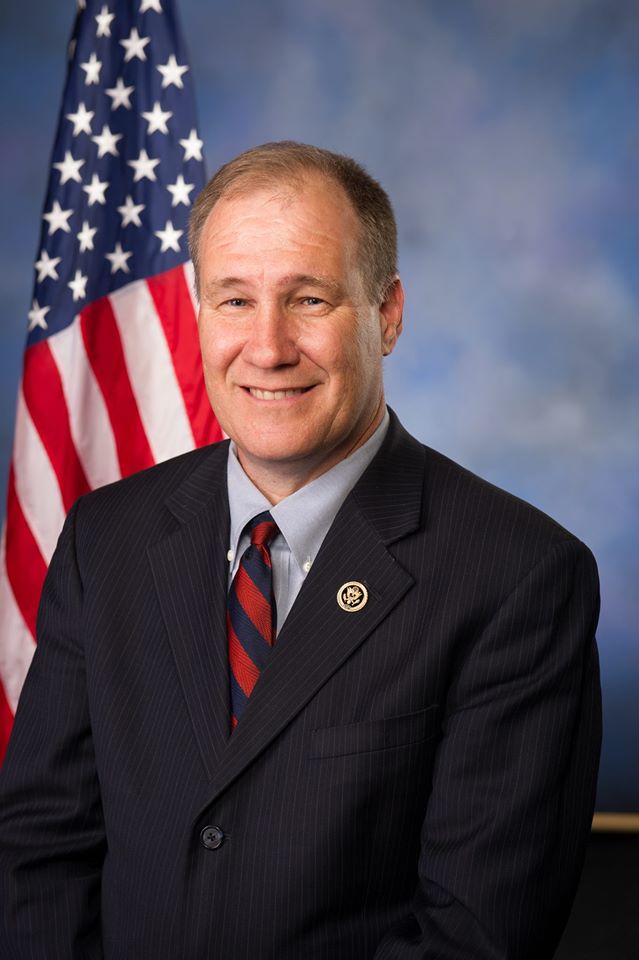
The presidential election was one of controversy ranging from deleted emails to the possibility of tampering from foreign powers, but amongst all the allegations and finger point it also sparked a wave of activism and involvement from citizens. One of those spurred into action was Randy Wadkins, a native of Iuka, Mississippi.
 “I grew up in Iuka in Tishomingo County then went to Ole Miss for my undergraduate and Ph.D.,” said Wadkins. “I’m the first in my family to graduate college and absolutely the first to get a Ph.D.”
“I grew up in Iuka in Tishomingo County then went to Ole Miss for my undergraduate and Ph.D.,” said Wadkins. “I’m the first in my family to graduate college and absolutely the first to get a Ph.D.”
Wadkins completed a Postdoctoral Fellowship at St. Jude’s Hospital in Memphis before returning to Ole Miss where he is a professor of chemistry & biochemistry. He has now decided to run for the District 1 Representative seat.
The tipping point would hit when President Trump released a budget that aimed substantial cuts at several scientific institutions and endowments. Wadkins felt it was time to throw his hat into the ring.
“This budget would hit state schools the most,” said Wadkins. “Stanford, M.I.T., Harvard . . . those schools will be fine, they have massive endowments, but Southern Miss, Mississippi State, Ole Miss would feel the impact. The chancellor is very proud of our Rank 1 as a research school and that would definitely go away under that budget.”
Wadkins has recently completely a yearlong congressional fellowship with Congressman Steve Cohen in Memphis where he focused on Healthcare policy. He recalled congressman from growing up who he considered to be smart, strong men that, “were there to represent Mississippi and demand our place at the table,” but his time there was an eye opening experience.
“I just assumed the people who were getting elected now were the same way,” said Wadkins. “That’s not what I saw at all. I saw people that had gotten caught up in national politics and were towing these political ideas that were completely at odds with the people they were representing.”
He takes a strong stance when it comes to the healthcare bill the Republican Party recently attempted to pass.
“AHCA, the American Healthcare Act, is the Obamacare repeal and replace bill that the republicans tried to push through,” said Wadkins. “If that had gone through about 300,000 people in Mississippi would have lost health coverage and it would have put several hospitals in the Delta in jeopardy.”

The fact that current District 1 Representative Trent Kelly voted in favor of the AHCA left Wadkins with a bone to pick.
“Trent Kelly voted for the American Health Care Act which would be devastating for the people in his district,” said Wadkins. “He not only voted for it, but he went and partied with the president afterwards…I saw this over and over again where the party line was the most important thing and your constituents were an afterthought.”
As someone firmly rooted in the objectivity of facts and allowing states to pass laws that would best help its citizens, Wadkins is a supporter of legalizing medical marijuana.
“Marijuana is still classified by the federal government, by law enforcement, as a schedule 1 drug along with heroin…and I think that’s the most ridiculous thing,” said Wadkins.
He still considers the act of setting something on fire and breathing it into your lungs to be a terrible idea, but Wadkins is firmly in favor of the medicinal qualities.
“It has shown effectiveness in pain relief, especially in veterans with PTSD, and may be used instead of opioids,” said Wadkins. “Because of the huge opioid problem we have in the United States, many states have legalized medical marijuana for treatment of pain, including West Virginia where the opioid problem is probably the worst. A lot of people associate marijuana with liberals, but a lot of states like West Virginia and Arkansas are very conservative states who have also legalized marijuana for medicinal purposes.”
While Mississippi has only passed legislation allowing access to CBD oil for those with severe seizures, Ole Miss has long been assisting the federal government with research into marijuana.
“Mississippi has been supplying marijuana for scientific studies for 50 years,” said Wadkins. “And yet you cannot get medical marijuana in the state.”
Wadkins is running on a platform that aims to bring District 1 into the 21st century and retain the graduates that receive their degrees in the state.
“Like many who studied in a STEM field, I had to go out of state to find work,” said Wadkins.
The “brain drain”, as it has come to be known, is largely attributed to a lack of high tech industry in the state. The approach to doing that is to encourage startups and established companies to bring their offices here.
“Typically you need to establish a few startups to entice the larger corporations to come since there will be a workforce at that point,” explained Wadkins.
He cites Huntsville, Alabama as a great example of what North Mississippi can aspire to.
“It’s just a couple hours away, but they have a growing tech industry there,” said Wadkins. “They just recently built a biotech park. There’s no real difference between North Alabama and North Mississippi, we just have to build a workforce and bring in those jobs.”
A piece of legislation he plans to introduce should he win the seat is a tax break for installing solar panels on your business or home.
“Solar City, a subsidiary of Tesla, is manufacturing these solar shingles that look almost identical to normal roofing shingles, but they can power your entire home,” said Wadkins. “I’d like to offer tax breaks to help offset the expense and help bring that technology into the area.”
Wadkins references the Medicinal Plant Facility as a great example of utilizing the tax funded research facility to begin building an industry.
“The Medicinal Plant Facility on campus researches plant material found across the nation as well as in Mississippi to be used in treatment to fight cancer and fungal infections. Those could easily shoot off to become their own startups.”
While Wadkins has plenty of plans to improve District 1, his first step is winning the election and that means reaching out to the 22 counties of constituents.
“We’ve got the website wadkinsforcongress.com and we’re on social media, but, and a lot of people might not realize this, a good portion of North East Mississippi doesn’t have internet access,” said Wadkins. “Cable lines don’t run out that far so most people use satellite. The internet through satellite is incredibly slow and expensive so most just don’t bother with it.”
While his platform is progressive and the district previously voted in a republican, he’s not concerned about battling party lines.
“People tend to paint all Democrats with one brush, saying that the leaders are from California and New York,” said Wadkins. “But I’m from Mississippi, I was raised here right along with everyone else.”
The democrat feels that when the constituents see the facts and the voting history of who they elected, it will be an easy decision.
“We just have to inform them,” said Wadkins. “300,000 of them would have lost health insurance with AHCA that Kelly voted for.”
While Wadkins is more scientist than politician he has faith in District 1 to elect a representative that he feels will help them grow and thrive.
“There’s only one scientist in Congress right, Representative Bill of Foster of Illinois,” said Wadkins. “I believe that Mississippi is going to shock the world by electing the second one.” ![]()
